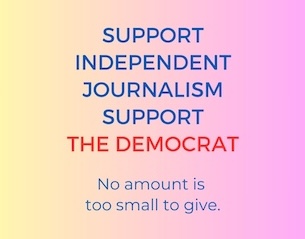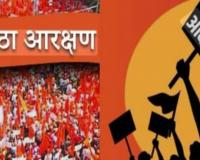- India
- Dr Aparna along with Dr Ankuran and Raja discuss archiving of visual media
Dr Aparna along with Dr Ankuran and Raja discuss archiving of visual media
Prof. Ujjwal unfolds blended learning

NOIDA: Day-5 of ICAN-4- World’s First 10-day Digital Live International Conference on Information, Communication and Artificial Networks began with Master Class 5 on the topic ‘Practices of archiving visual media: A case study from Northeast India’ by Dr Ankuran Dutta Associate Professor and Head, Department of Communication and Journalism, Gauhati University, Assam, Dr Aparna Sharma, Associate Professor, World Arts and Cultures/ Dance, University of California Los Angeles, USA and Mr Raja Das Programme Officer, Dr Anamika Ray Memorial Trust, Guwahati.
Dr Ambrish Saxena, Professor and Dean, DME Media School in his opening remarks said that the work being done by researchers for the preservation of Indian arts, culture and heritage is commendable. “There is a need to give impetus to such researches,” he added.
Dr Sharma talked about the Modern and endangered archived programme run by the University of California Los Angeles (UCLA). She decoded steps to establish potential digitization. “UCLA programme is to preserve archival material mainly of the non-western world especially of the 20th century,” she said. “When you work with a photographer from the 1970s you also work through a history of photographs and technicality,” she added further.
Mr Raja through a survey talked about the inventory of the photographic collection. He talked about the steps of how to create an inventory He also talked about the copyright issue. “It is important to know about the laws so that you could use archived photographs for your use without getting trapped into legal implications,” said Mr Raja.
Dr Dutta emphasised on the subject- ‘Visual Histories of North-East at The Crossroads’. He initiated his talk citing an example of Bourne and Shepherd studio which is one of the oldest photographic studios in the world. “In terms of archiving, we have to be very careful in ensuring the validity or accuracy of the content. We need to understand the context of the photographs and make sure there's no misrepresentation of the larger context”, said Dr Dutta.
In the end, experts of the session elaborated upon some of the queries raised by the participants. While Ms Tinam Borah, Assistant Professor, DME Media School moderated the session. Kshitij Sharma, a first-year student did anchoring.
Dr Susmita Bala, Head and Professor, DME Media School concluded by saying that it was a wonderful Master Class and everyone must have learned a lot.
Technical Session-4
Then ICAN-4 processed with a Technical Session IV on the theme ‘Education in the age of digital media and Artificial Intelligence’, chaired by Dr Nisha Pawar, Head, Department of Journalism, Mass Communication and Coordinator of Mass Communication, Shivaji University, Kolhapur, Maharashtra. Dr Sheelpa Sweety, Assistant Professor, School of Humanities, K.R. Mangalam University, Gurugram, Haryana and Mr Pramod Kumar Pandey, Assistant Professor, DME Media School co-chaired the session.
Research papers on topics like Board Examinations and its implications, Effect of Digital Divide on Education, Impact of COVID- 19 on education and new media tools in higher educational institutes were presented during the session.
Dr Ambrish Saxena in the opening remarks said, “Digital media has embraced a lot of impact in the field of education. It is good to have a discussion on this theme in ICAN-4.
Dr Pawar while commenting on the presentations, extended upon the untouched aspects of the research papers presented by the scholars. She thanked the organising committee of ICAN for putting up such wonderful themes which are the need of the hour. Dr Sweety also raised several points and helped researchers to explore more avenues in their topics. Dr Susmita Bala thanked the chair and co-chair and urged authors to continue working in the field of research.
In the end, Dr Sunayan Bhattacharjee, School of Media and Communication (SOMC), Adamas University (AU), Kolkata was awarded the best paper presenter for Technical Session-3 for his paper on ‘Feminist Messages in Guru Dutt’s ‘Pyaasa’ (1957): A Distinctive Case Study’.
Master Class 6
While inaugurating the Master Class 6 on ‘Executing Blended Learning in Media and Communication’ and welcoming Prof. Ujjwal K. Chowdhury, Pro Vice Chancellor (PR & Media), Adamas University, Kolkata, West Bengal, Dr Ambrish Saxena raised issues related to online education post pandemic scenario. He said that during the pandemic times, needless to say, online education is the new normal. But how will the scenario unfold post pandemic? Will online education continue to exist? Or will there be a blended system of online and offline education? These issues needed to be discussed, he added.
It was a master class in the true sense where the master orator Prof. Ujjwal K. Chowdhury, outlined the future course of education in the country. “The education is mentoring and learning in the blended world with focus on communication, media and entertainment,” he said.
Prof Chowdhury, unfolded the future relationship between the teacher and students as that of mentor and learner. “Teacher of today is dead. Welcome the mentor of tomorrow. A mentor is a friend, guide and a motivator. He is somebody who need not know everything. Rather he should be aware of something of everything. He is high on emotional intelligence and human touch,” he explained.
The education has to be content driven and technology savvy to engage the learner . The learner has to be engaged experientially, innovatively, creatively and evaluated similarly. Let the learner earn his evaluation. The future is individual learning based on organic structure of learning.
Dr Susmita Bala, concluded the session by adding that at DME too we have become mentors from teachers and we are gearing up to face the future challenges.













